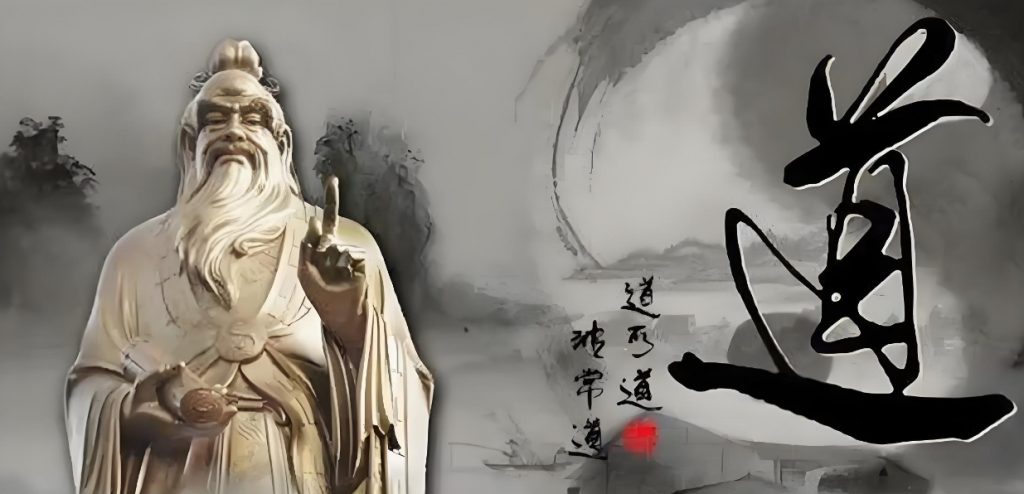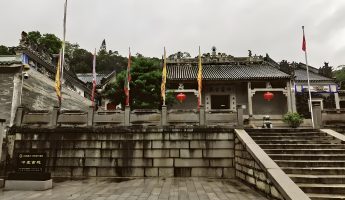Taoism is a native religion with the highest belief in “Tao” and Chinese national cultural characteristics. It is the root of the Chinese people and the source of oriental scientific wisdom. Taoism is a native religion in China, with a long history and rich doctrines, and is an important part of Chinese traditional culture. His ideas of respecting morality, doing nothing, being united and loving, being simple and honest, etc. not only have a profound impact on Chinese culture and ideology, but also have a profound reference significance for solving many problems facing the world today.
1、 Unity of Heaven and Man
The concept of “unity of heaven and man” was first expounded by Zhuangzi, and later developed into a philosophical system of unity of heaven and man by the Confucian scholar Dong Zhongshu in the Han Dynasty, thus constructing the main body of traditional Chinese culture. In the history of Chinese thought, ‘the unity of heaven and man’ is a fundamental belief. Mr. Ji Xianlin explained it as: Heaven is nature; Man is human; Harmony means mutual understanding and forming friendships.
2、 Respect the Heavenly Ancestor
Respecting the Heavenly Ancestor is the core belief and highly summarized form of Zhou ritual, where ‘heaven’ refers to the heavenly gods and goddesses; Ancestor “refers to the ancestor of the ancestral temple. In ancient China, there were strict hierarchical boundaries for worship: the gods and earth could only be worshipped by the emperor, feudal lords and officials could worship mountains and rivers, and commoners could only worship their own ancestors and the Kitchen God. Qingming Festival and Zhongyuan Festival Festival are ancestor worship days, and ancestor worship is the most direct way for Han people to declare themselves as descendants of the Chinese people.
3、 The Heavenly Way bears the responsibility
The Taoist concept of “bearing burdens” originates from the “Taiping Jing”, which means that if ancestors accumulate virtue and do good deeds, they can benefit their descendants; If our ancestors have repeatedly committed evil deeds, future generations will suffer innocent disasters. The saying goes, ‘A house that accumulates good deeds will have surplus blessings; a house that accumulates bad deeds will have surplus misfortunes.’.

4、 Returning to simplicity
Taoism believes that the original nature of human beings is simple and pure, which is close to the nature of the “Dao”, so people often say that children are innocent and pure. But as one grows older, thoughts and desires continue to emerge, coupled with the different influences of social environments and the temptation of erotic wealth, constantly consuming one’s original life essence and becoming obsessed with one’s original pure nature. If one continues to indulge in insatiable desires, it will seriously damage one’s mental and physical health, and go against it from then on. And learning and practicing the Tao is to bring the mind and life back to a pure and innocent state.
5、 Being like water
The concept of ‘the highest good is like water’ comes from Chapter 8 of Laozi’s’ Tao Te Ching ‘:’ The highest good is like water. Water is good for all things and does not compete, and it can handle the evil of others, so it is almost equivalent to the Tao. Living in a good place, having a good heart, being kind and benevolent, speaking well and believing, governing well, doing good deeds, and acting well. Only by not competing, there is no superiority. ‘The concept of’ the highest good is like water ‘is the highest level of good deeds, just like the character of water, which covers all things without competing for fame and fortune.
6、 Tranquility and non action
The doctrine of tranquility in Taoism is intertwined and corresponds with the concept of turbidity. The Tao nurtures and nurtures all things with its tranquil nature, never considering what rewards or desires it should receive, and having no desire to wait for all things. If human society also adopts the idea of “tranquility” to govern and cultivate itself, the world will be harmonious and peaceful, people will have better rest and life, and life will be sublimated. So, those who learn the Tao and believe must first learn to know tranquility, and use constant tranquility as the standard of behavior, in order to achieve the pursuit of spiritual cultivation and enlightenment.
7、 My life is in me
Starting from the pursuit of immortality by immortals, Taoism has established the life subject theory of “my destiny lies in me” and “immortals can be learned”, advocating the role of subjective initiative, continuous progress, fearless struggle, and reaching the ideal state of immortality.
8、 Benevolence and Integrity
Loyalty and filial piety are fundamental moral values in Chinese society. Ren “is the core and main theme of Chinese civilization, and” benevolence “and” integrity “are the most important moral values in the long-standing excellent traditional culture. They are traditional virtues of our country and are still living and vibrant values today.



